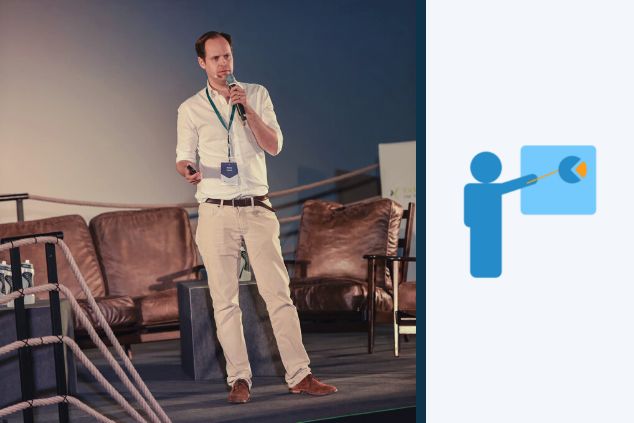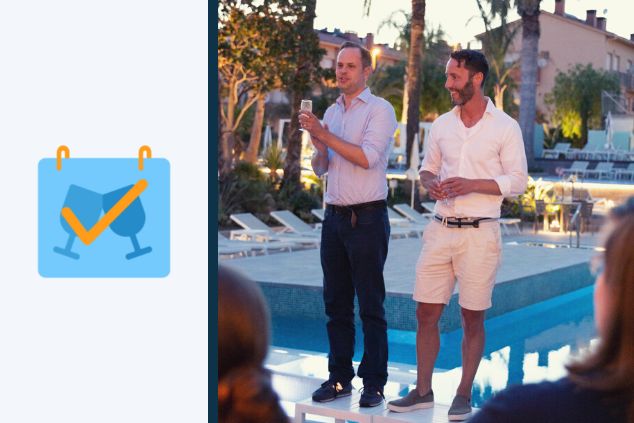InterNations turns 15: Co-founders Malte and Philipp explain why a community for people who live and work abroad is still essential today and where they see the potential of InterNations for the years to come.

A founding story that couldn’t be more fitting: two friends created the world’s largest expat network, a community that makes finding friends abroad easier. That was in 2007. Malte and Philipp became good friends at university in Switzerland. Between them they have worked or studied abroad in various locations: St. Gallen, Milan, São Paulo, Croatia, and Cape Town. When abroad, they missed two things: a community to help them overcome the challenges of everyday life and a way to make friends in their new home.
Now, 15 years later, together with a team that’s grown to nearly 100 people, Malte and Philipp have turned InterNations into the world’s largest international community with more than 4.5 million members in 420 cities worldwide. InterNations offers around 6,000 monthly events. Since the pandemic some take place online, but most of them are in person.
Can InterNations continue to grow? Or will Facebook, Instagram, and others replace the need for a global expat network? An interview with the founders.
When you started off 15 years ago, what were the problems you were trying to solve for expats?
Malte: The biggest challenge when living abroad is to find like-minded people to spend time with. And of course, there are admin issues: organizing visas, accommodation, a job, and schools for your kids. Connecting with other international people before and after you move abroad can help with all these things. And wherever you go, there’s an InterNations Community to welcome you.
Have expats’ problems changed over the years?
Malte: Not the problems, but the demographics of expats have changed. Back then, the typical expat was a corporate assignee sent over by their company.
Today, people move less because their employer sends them abroad company on an expat assignment. They tend to move more because they want to have an international experience or find a job abroad on their own.
China and Russia, once hotspots for expats, have become less attractive for political and environmental reasons. For digital nomads and retirees, destinations like Taiwan, Mexico, or Portugal have become popular.
Philipp: Yes, we notice more individual relocations. I think this trend will continue. Especially in software development and engineering, people often go abroad as they’re able to work remotely.
I also believe that some obstacles when moving abroad (e.g., finding accommodation) have become easier with the wider availability of online services. But the fundamental issue of finding friends abroad is still the same.
A lot has changed since you founded InterNations. An important word in the context of work today is “purpose”. What motivates you most about your work every day?
Philipp: To make expat life a great experience — that was our mission from the start and that still motivates me. What also makes me feel good about my job is the idea of taking care of our team, to create a work environment that provides them with fulfillment.
Malte: Our mission from the start was to help expats get rid of the initial obstacles and make life abroad an enriching and enjoyable experience. And when I attend our InterNations Events, I immediately feel this sense of purpose. Members keep telling me how InterNations has impacted their lives and that they were able to find a job or the love of their life via our community.
Do you have any examples of how InterNations helps create friendships and a sense of community?
Malte: One of my friends worked in Hong Kong and met a woman from Russia at an InterNations Event. They fell in love and got married. Today, they live in Berlin with their child. These types of stories often happen via InterNations.
Philipp: I recently met a German InterNations member with his Italian wife and kids. During the pandemic, he found himself in a hard lockdown in Bergamo, cut off from his family for two months. Bergamo had some of the most severe COVID-19 regulations in Europe. People weren’t even allowed to go for a walk outside due to the extremely high death toll.
This member told me how InterNations had helped him get through these difficult months via our online events, run by our InterNations Community in Milan. Through these virtual encounters, he was able to talk to others in similar situations. It made me proud to know that InterNations had made his life easier.

This month, InterNations is celebrating its 15th anniversary with parties happening in numerous cities around the world. Where do you see InterNations 15 years from now?
Philipp: We already have big communities in the classic expat hubs like Singapore, Dubai, Paris, or New York. Around 80% of our in-person events take place in the largest 20 cities. In the future, we aim to also offer a wide variety of events in our smaller communities, especially in Asia, South America, or Africa. Our online events are already a good start, as they give all our members, no matter where they live, the opportunity to participate.
Malte: There are around 60 million expats globally, so our goal is to also welcome more of them to our community. We’d also like to start offering more types of events, such as InterNations Tours, which allow members to go on longer trips together.
Malte, you’ve just come back from one year in Cape Town with your family. What’s the InterNations Community like over there?
Malte: There’s a fantastic team of volunteers, our local Ambassadors and Consuls, who organize events in restaurants, bars, and clubs. These gatherings are a great way for members to get to know each other. And the community includes people from all over the world: 30% are locals and 70% are expats, for example, from Europe, the USA, and Asia. It was nice to meet members of all ages, from a 21-year-old intern to a 50-year-old top executive, as well as 65-year-old retirees.
Do people still need an expat community? Doesn’t all the networking take place on social media nowadays?
Philipp: People will never satisfy their need for connection by chatting on Facebook or posting images on Instagram. The need to find friends abroad still exists, and you can only create meaningful connections by meeting people in person. Since we provide these opportunities to meet and mingle, we continue to offer something that people can’t find elsewhere.
Malte: What I like about our events is that it’s so easy to meet other people. You’re in a new city on a Friday evening, and you can just go to one of our events and say “Hi, my name is Malte, who are you?” Everyone is just there to chat, and people are super-interesting. You’ll have a hard time trying to just chat to someone like that in a bar.
How are you going to celebrate InterNations’ 15th anniversary?
Philipp: We’ll celebrate with our InterNations Team on a five-day trip to Croatia. We’ll work together on some of our goals for next year and beyond, and we’ll also use the time to chat and spend time together — something we’ve learned to appreciate since becoming a remote-first company. And of course, we’ll attend some of the wonderful anniversary celebrations our amazing Ambassadors and Consuls are hosting around the globe.
Image credit: InterNations / New Work SE


I needed Panamanian friend